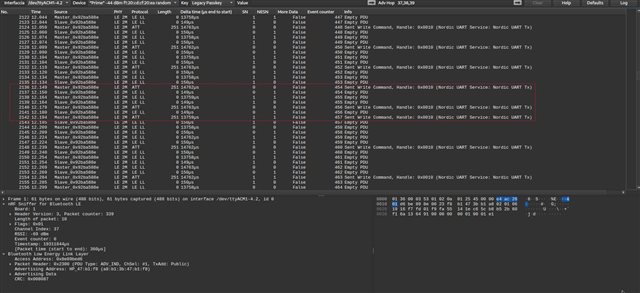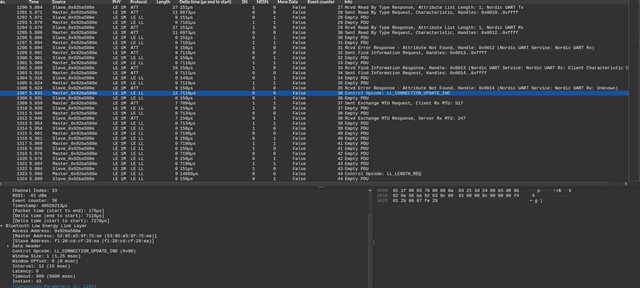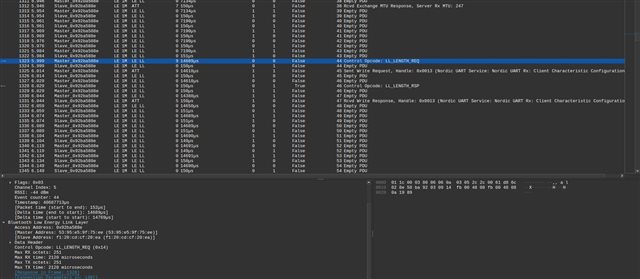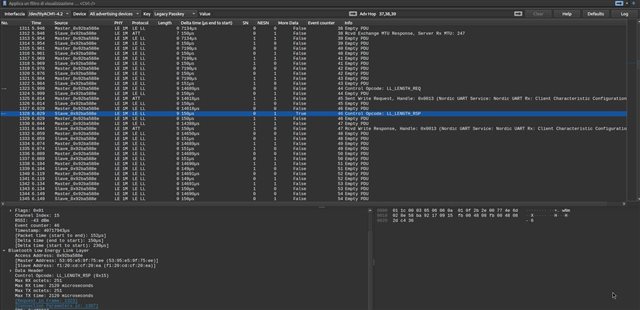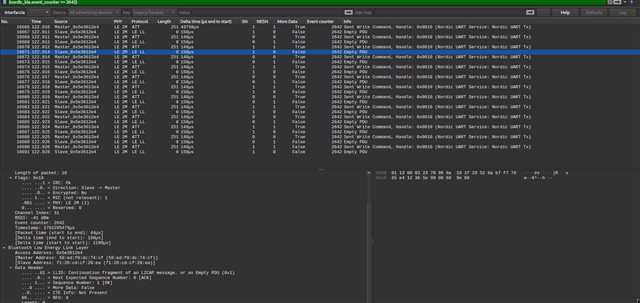Hi guys,
i show you an image here where I am sending from my board a text file ( about 75KB ) to nordic toolbox via nus, I use notify to send ( but I have similar situation when receiving from nrf toolbox).
Basically I see some empty connection interval ( 3 usually ) between a notify indication and the next one, also if probably data could be sent also in that period. I am using an MTU of 259 ( i will attach also sniffer log).
All is working, but obviously that silent of 3 connection intervals slows my data rate. Could that be an Android limitation? I tried with 3 android phones and seems identical, they all force my connection interval to 11.25 ms.
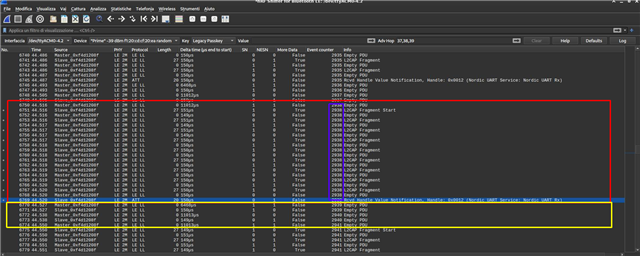
In red the event id 2938 with full packet incoming and notified, the 3 empty intervals in blue.
Full log:



